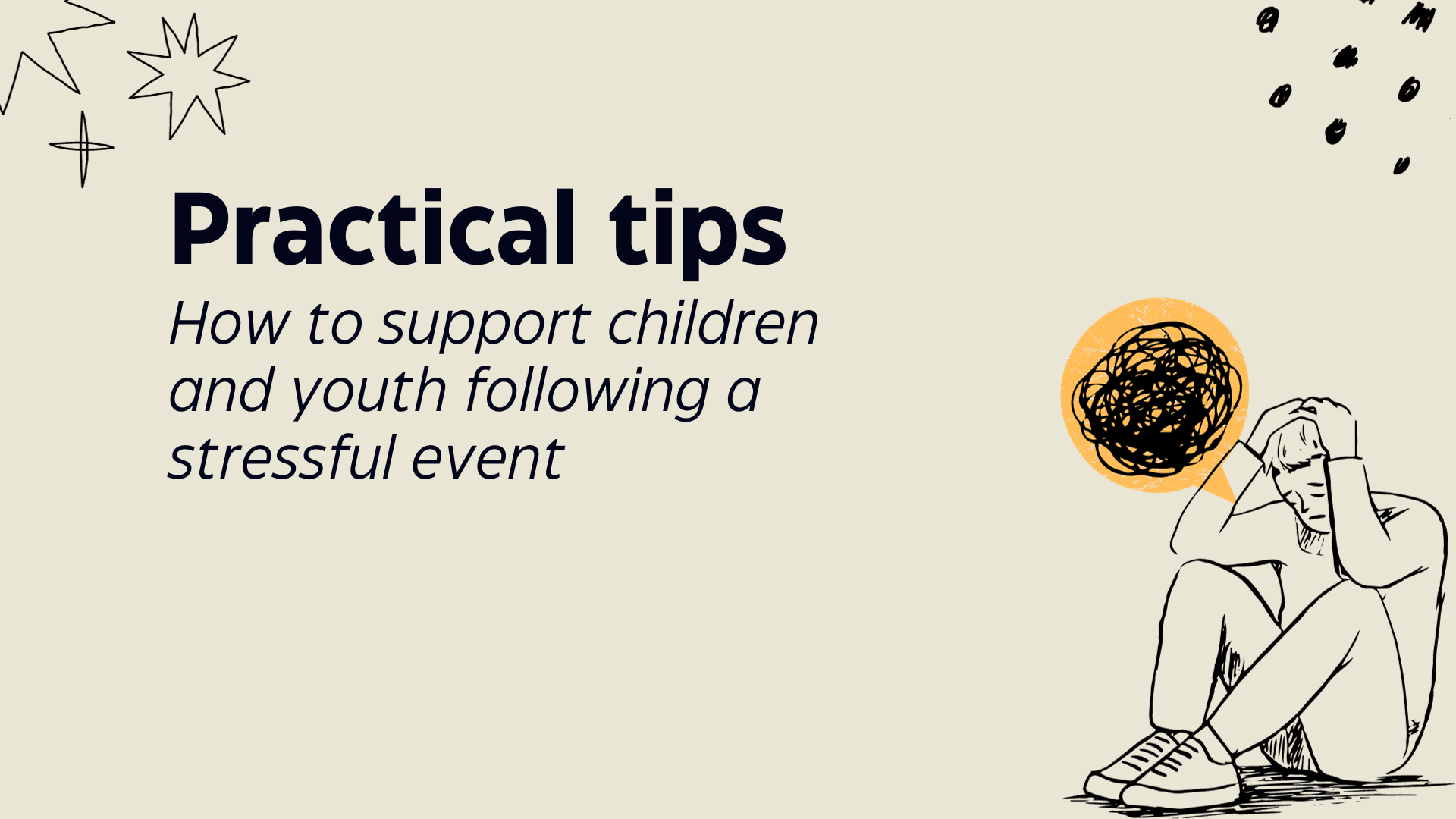Practical tips - How to support children and youth following a stressful event

Media reports on such events can sometimes have a negative effect on children and youth. Some of them are more sensitive and may experience anxiety and fear. Here are some practical tips to help you support children and youth following a stressful event.
- Supervise and limit access to the media – for children aged 2 to 8
You should never assume that children are unaware of current events. With social media and technology, it is almost impossible to avoid it. It is therefore important to question what they have learned and what they feel after an incident. For young children, it is strongly recommended that they not be exposed to the media since they do not always have the skills needed to interpret the information.
Limit children’s access to the media and avoid discussing the event with other adults in their presence. Limit and if necessary eliminate access to social media since the information and images found there are sometimes disturbing and the content is beyond your control.
- Be reassuring
Reassure children and youth by telling them they are safe and that trustworthy people (parents, teachers and professionals) are taking care of the situation. Parents and adults are important role models. Your reactions and responses following such events can have a considerable impact on how children react. It is important to contain those emotions. Telling children that you are affected by an event is completely appropriate, but it is important that they see that you are in control of your emotions and are there to protect them.
- Talk to them and answer their questions
Some children are more vocal and ask questions openly. However, more introverted children do not always express their concerns, which can sometimes increase the anxiety they feel. Children might wonder: “Am I safe?” and “Are Mom and Dad safe?”. Using appropriate vocabulary, reassure them that people in authority and adults are taking the measures necessary to ensure people’s safety. You must answer their questions honestly but, in the case of young children, without going into too much detail. It is important to respect children’s wishes if they prefer not to talk about an event.
- Counter false perceptions/information – for children aged 8 to 16
With older children, you can use such opportunities to discuss how the media works. Watch the news and look at messages conveyed by social media and discuss them. You should ask for their opinions on the event and invite them to share their perceptions and interpretations of the situation with you. This provides a great opportunity for interesting discussions!
- Be there for them
To make children feel safer, keep up the family routine and daily activities (e.g.: meals, board games, sports, etc.). If a child seeks more physical affection, it is important to meet their needs since that gives them great comfort. Some children may have temporary problems with their bedtime routine (difficulty going to sleep and nightmares). Remain patient and reassure them with concrete actions and positive words.
- Stress the positive
It is important to take every opportunity to develop children’s resiliency. In these circumstances, adults can point out the positive things that have emerged from the situation, such as heroic actions, community cooperation and political movements. Those events can help bring people closer together and make us aware of various positive things in life.
- Teach tolerance and respect
If the situation arises from violence carried out by an individual or a group, avoid blaming a culture, a race, an ethnic group or a person with mental health problems. The incident in question provides a good opportunity for educating children on the impacts of discrimination and stigmatization.
- Ask for help
If you have applied all these practical tips and would still like to get additional support, contact us at 1-800-675-6168.









